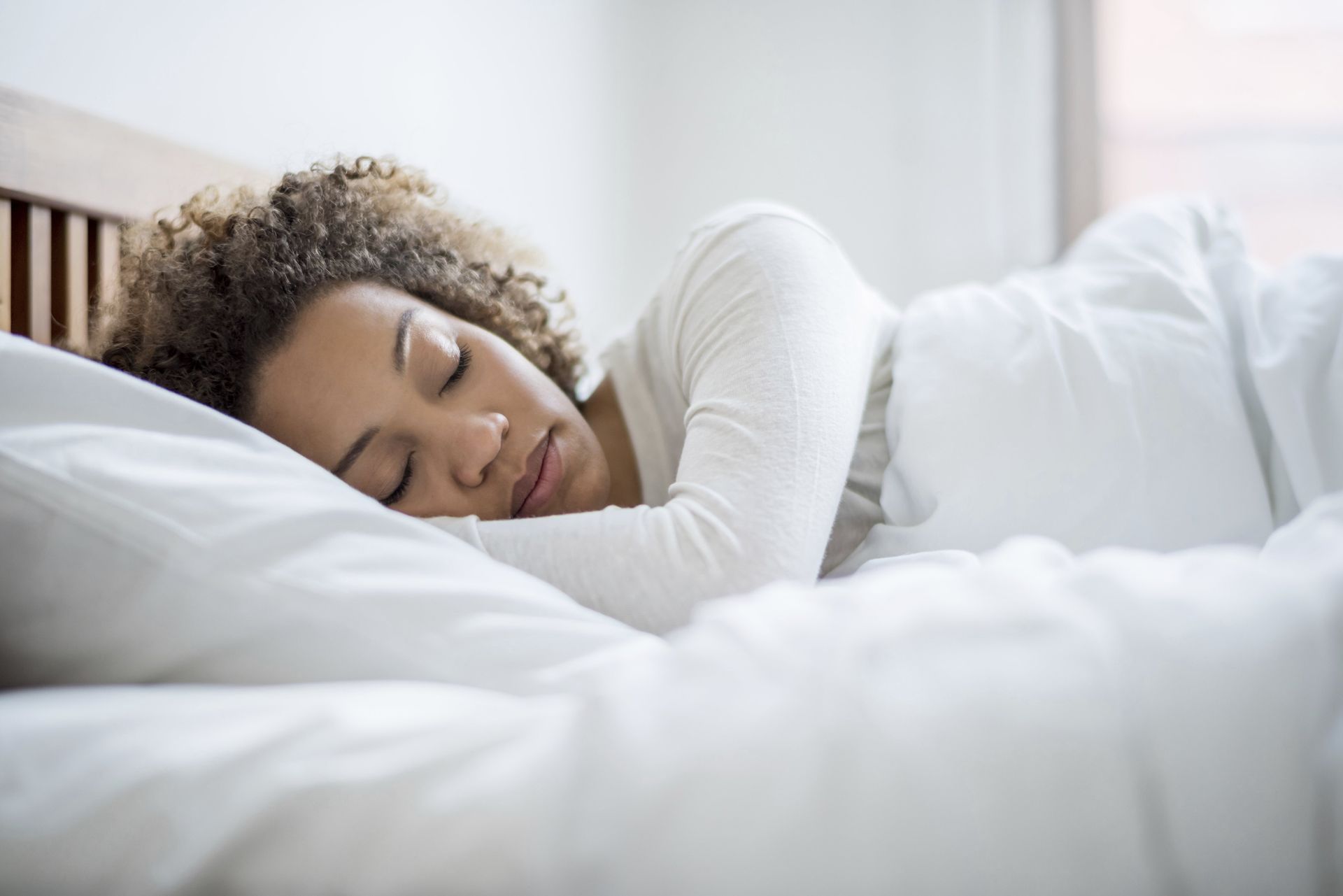Sleep – Impacts on Women’s Health

Everyone tries to get sleep, and it seems that no one gets enough of it. Lack of sleep is one of the leading indicators of accidents, difficulty in mental processing, heart disease and lack of sex drive.
Women have their own issues to deal with in regards to sleep and health, such as –
·Sleep disturbances during pregnancy due to excess weight and the position of the fetus.
·Difficulty sleeping during menopause due to hot flashes.
·Being woken and moved about by a partner in the same bed (men tend to be larger than women.)
·Differences in hormone make up makes it harder for women to recover from lack of sleep (specifically, differences in testosterone, which has an anti-inflammatory effect.)
So, what can women do to get better sleep? Here are some ideas and tips –
Exercise
Clinical Psychologist Kelly Baron recently told Shape.com that 16 weeks of aerobic exercise four days a week helped women get 7 hours of rest nightly. It’s known that exercise increases dopamine levels and overall wellbeing. As lower stress levels can lead to easier sleep, exercise creates a virtuous cycle that makes for better sleep and health.
Diet and Vitamins
As we mentioned in our recent article , both vitamins and diet can lead to better sleep. Radical weight loss programs can be just as bad for sleep and health as obesity. Speak with your doctor about a reasonable program of diet and weight control. Everyone has different needs, but working on a reasonable nutrition program with your GP, as part of an overall health exam, can earn big dividends in improving sleep and quality of life.
Particularly, B vitamins, Iron and Calcium are important for women’s health. Speak with your doctor about these issues.
Establishing a regular schedule
Bodies work on natural rhythms, and a chaotic schedule can wreak havoc on the body, especially with regard to sleep. Sleep restores our bodies, and it’s easier for the body to deal with smaller amounts of sleep on a regular schedule than a chaotic, constantly changing one. The American Academy of Sleep Medicine’s recent study links irregular sleep schedules to adverse metabolic health in women.
Sleep and the hormone cycle
Hormone cycles that are part of the regular menstrual process can have effects on the sleep cycle, and vice versa. Premenstrual Insomnia is an issue for many women, which is associated with a drop in the hormone Progesterone. This can be dealt with by a number of strategies, but it should start with a discussion with both your GP and OB GYN.
Speak with your doctor
Your general practitioner is the best starting resource, as well as talking with your gynecologist about reproductive health issues. Sleep issues often indicate larger patterns with overall health, and rest can be improved with lifestyle changes.
Do you have questions about woman’s health and sleep? Let us know.